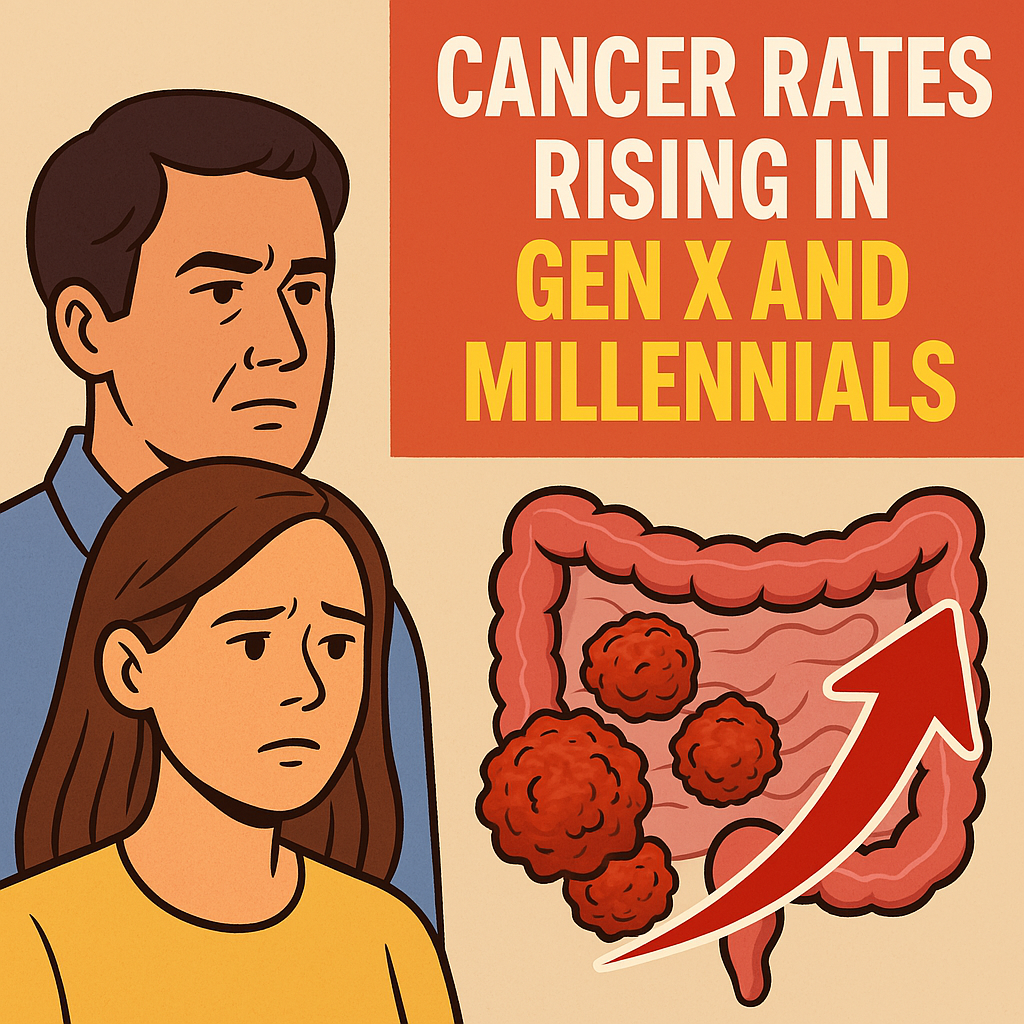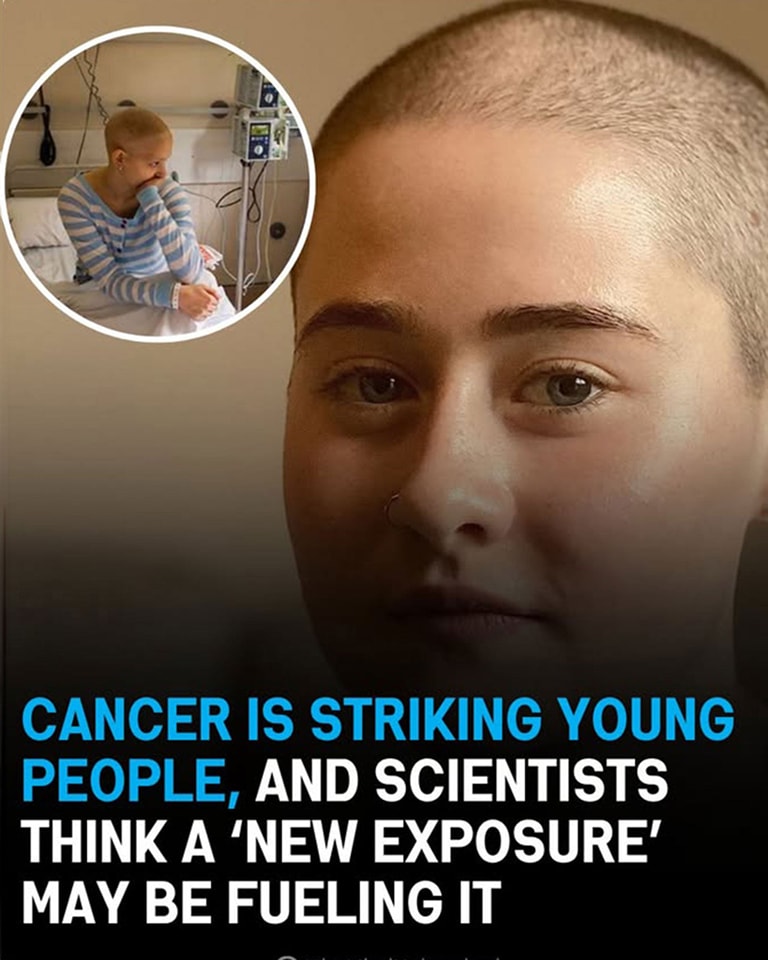Recent research has uncovered a troubling trend: cancer rates are rising among Generation X and Millennials at a faster rate than older generations. As these younger groups face an increase in cancer diagnoses, the findings raise critical questions about environmental factors, lifestyle changes, and genetic influences. This article delves into the reasons behind this increase and what it means for these generations in the years to come.
Understanding the Rising Cancer Rates Among Gen X and Millennials
Cancer rates have been a major health concern for decades, but the latest study reveals that Gen X (born between 1965-1980) and Millennials (born between 1981-1996) are experiencing higher rates of cancer compared to Baby Boomers and older generations. According to the American Cancer Society, this trend is most noticeable for certain types of cancer, including colorectal, breast, and liver cancer. While medical advancements and early detection have improved survival rates, the rising incidence is worrying.
The Factors Contributing to Rising Cancer Rates
There are several factors believed to be contributing to the increasing cancer rates among younger people. Below are some of the most prominent ones:
1. Lifestyle Changes
The lifestyles of Gen X and Millennials have significantly changed compared to previous generations. Increased stress, poor dietary habits, and a lack of physical activity have been linked to the rise in cancers such as colorectal and breast cancer. In addition, high consumption of processed foods, alcohol, and sugary drinks is becoming more prevalent. These habits can contribute to weight gain, obesity, and metabolic conditions that increase the risk of cancer.
2. Environmental Factors
Environmental exposure to chemicals, pollution, and toxins plays a critical role in the development of many cancers. Gen X and Millennials have grown up in an era of industrialization and rapid urbanization, both of which are associated with environmental risks. Exposure to harmful chemicals in food, water, and the air may have contributed to the increase in cancer rates. Moreover, prolonged exposure to radiation from devices like cell phones and laptops could also be a contributing factor.

3. Changes in Reproductive Health
Increased rates of delayed childbirth, reduced fertility, and more women opting for hormonal birth control are factors that have been linked to higher risks of certain cancers, such as breast cancer. Research suggests that changes in reproductive health patterns and exposure to synthetic hormones could play a role in this rise.
4. Genetic Predispositions
Genetic mutations that make individuals more susceptible to cancer have also been found to increase among younger generations. Some inherited conditions, such as Lynch syndrome, predispose individuals to colorectal cancer, and these genetic factors can increase cancer risk in Gen X and Millennials.
5. Increased Screening and Awareness
The increase in diagnoses may also be partially due to better screening and greater awareness of cancer in younger populations. For example, colorectal cancer rates have been increasing in younger adults, but this may be due to more widespread screening programs that allow for earlier detection. As a result, cancers that may have previously gone undetected are now being diagnosed at an earlier stage.
The Most Common Cancers Affecting Gen X and Millennials
While cancer rates are rising in these generations, certain types of cancer are particularly common:
- Colorectal Cancer: Once considered a disease of older adults, colorectal cancer is now affecting Gen X and Millennials more frequently. A combination of genetic factors, poor diet, and sedentary lifestyles has been linked to this rise.
- Breast Cancer: Women in their 30s and 40s are now being diagnosed with breast cancer at higher rates. Increased hormone exposure, delayed pregnancies, and family history are all contributing factors to this rise.
- Liver Cancer: Rates of liver cancer, particularly in younger people, have surged due to increased alcohol consumption and the rise of obesity-related diseases such as non-alcoholic fatty liver disease.
- Skin Cancer: Millennials, in particular, are at high risk for skin cancer, including melanoma. Exposure to tanning beds and excessive sun exposure has contributed to this surge in diagnoses.
The Importance of Early Detection and Prevention
While the rising cancer rates in Gen X and Millennials are concerning, early detection remains key to successful treatment. Many cancers, if caught early, can be treated more effectively, leading to higher survival rates. Regular screenings, such as colonoscopies and mammograms, along with genetic testing, can play a critical role in early diagnosis.
In addition to regular check-ups, adopting healthier lifestyles can also lower the risk of developing cancer. This includes maintaining a healthy weight, eating a balanced diet rich in fruits and vegetables, exercising regularly, and avoiding excessive alcohol consumption and tobacco use.
What Can Gen X and Millennials Do to Reduce Their Risk?
- Adopt a Healthy Diet: Eating a well-balanced diet can reduce cancer risk. Focus on whole foods, including plenty of fruits, vegetables, lean proteins, and healthy fats. Reducing processed foods, sugary drinks, and alcohol can help minimize the risk of obesity and related cancers.
- Exercise Regularly: Physical activity helps to regulate weight, boosts the immune system, and improves overall health. Aim for at least 150 minutes of moderate exercise or 75 minutes of vigorous exercise per week.
- Avoid Tobacco and Limit Alcohol: Smoking and excessive alcohol consumption are major risk factors for various types of cancer. Quitting smoking and limiting alcohol intake can significantly lower the risk of several cancers.
- Get Regular Screenings: As cancer rates rise in younger people, early detection becomes even more critical. Regular screenings for breast, colorectal, and skin cancer, as well as genetic testing, can help identify cancer at an early, more treatable stage.
Final Thoughts
The rise in cancer rates among Gen X and Millennials is a concerning trend, but it highlights the importance of prevention, early detection, and lifestyle changes. With better awareness, healthier habits, and regular screenings, these generations can reduce their risk and increase their chances of a cancer-free future.
Learn More:



